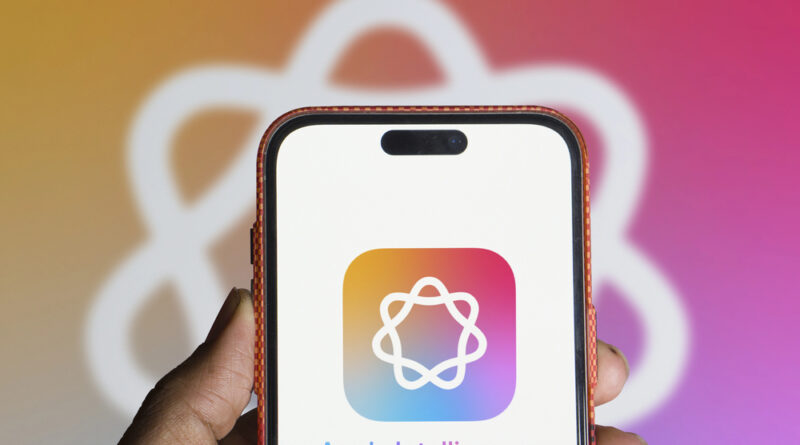Apple Scrambles to Rescue Siri with Major AI Overhaul
Apple’s quest to catch up in the rapidly accelerating AI race has hit significant hurdles, prompting the tech giant to rebuild Siri entirely around generative AI technology—internally dubbed “LLM Siri”—according to recent insights from Bloomberg’s Mark Gurman.
Despite Apple’s longstanding reputation as an industry leader, the company’s venture into advanced artificial intelligence—known as “Apple Intelligence”—has struggled since it debuted last year. Gurman’s in-depth reporting highlights internal conflicts, cautious investment strategies, and misaligned leadership as key reasons behind Apple’s AI setbacks.
Apple’s Late Start and Cautious Investment Strategy
According to Gurman, Apple’s reluctance to invest heavily in AI technology without a clear product roadmap has severely slowed progress. Led by Apple software chief Craig Federighi, the company initially hesitated at the heavy costs involved—particularly the high-performance GPUs essential for AI development. By the time Apple decided to move forward, GPU supplies had tightened, leaving them lagging behind competitors like Google and OpenAI, who had already accelerated their AI infrastructure.
Moreover, Apple reportedly had no significant plans to pursue generative AI until the explosive popularity of ChatGPT in late 2022 made the technology impossible to ignore. One unnamed Apple executive revealed to Gurman that Apple Intelligence “wasn’t even an idea” until OpenAI’s ChatGPT reshaped market expectations.
Leadership Missteps and Cultural Clashes
Internal leadership struggles have compounded Apple’s AI issues. John Giannandrea, Apple’s AI chief and a rare outside hire, reportedly underestimated consumer demand for chat-based AI assistants, believing customers preferred the ability to disable features like ChatGPT. Employees cited by Gurman said Giannandrea didn’t advocate forcefully enough for funding, nor did he prioritize swift innovation.
Apple’s AI marketing team also reportedly got ahead of reality, publicly promising groundbreaking features—including cross-app contextual understanding and vastly improved conversational interactions—that were nowhere near completion. This premature hype forced embarrassing delays and dampened internal morale.
Reinventing Siri from Scratch
Faced with these mounting challenges, Apple is now shifting gears completely, aiming to rebuild Siri from the ground up. Gurman highlights a major strategic pivot: Apple’s Zurich-based AI team is developing an entirely new architecture built on large language models (LLMs). This approach, internally called “LLM Siri,” aims to transform the digital assistant into something genuinely conversational, context-aware, and adept at synthesizing information from multiple sources.
To achieve this, Apple also plans innovative uses of differential privacy—a method that allows the company to improve AI models using real user data without compromising personal privacy. By synthesizing anonymized, aggregated language patterns from millions of iPhones, Apple intends to enhance Siri’s conversational abilities dramatically.
Another avenue under consideration is turning Siri into an AI-powered web search assistant, capable of quickly retrieving and summarizing information from various online sources. Gurman notes that Apple has approached AI search startup Perplexity about potential partnerships for integrating advanced AI-driven search into its Safari browser.
The Uncertain Future of Apple’s AI Leadership
Giannandrea, originally brought in to spearhead Apple’s AI vision, appears sidelined from this next crucial phase. Gurman reports that Giannandrea was quietly removed from direct product oversight—particularly in Siri, robotics, and other key AI-driven initiatives—earlier this year. Apple executives have reportedly discussed putting him on a “path to retirement,” though they remain wary of potentially losing key engineering talent loyal to him.
Despite these changes, Giannandrea plans to stay at Apple for the foreseeable future, with Gurman suggesting he’s “relieved” that reshaping Siri has become someone else’s responsibility.
A Pivotal Moment for Apple
Apple now stands at a critical juncture. With competitors racing ahead, the tech giant’s new commitment to LLM-powered Siri could represent a fresh start—or a last chance. If Apple’s revamped AI assistant can deliver a genuinely improved user experience, it could once again place the company firmly at the forefront of technology innovation.
But for now, Apple must reckon with internal missteps, recalibrate its vision, and navigate the complex task of delivering an AI that meets the expectations set by competitors—and its own ambitious promises.
Photo Credit: DepositPhotos.com

